How much does it cost in South Africa? How much does a trip to South Africa actually cost? This is a question many people who plan to travel to the country at the southernmost tip of Africa for the first time ask themselves. Whether it’s a safari adventure in Kruger National Park, a road trip along the Garden Route, or a relaxing city trip through Cape Town – South Africa offers countless options, each of which can vary in terms of budget.
In this article, we’ll show you what expenses you can expect for flights, accommodations, food, transportation, and activities. We have already been to South Africa six times and are therefore very familiar with the area – this way you can plan your trip even better and know exactly what to expect financially.
We answer the following questions, among others:
Is South Africa an expensive country to travel to?
How much money do you need per day in South Africa?
✈️ How much do flights to South Africa cost?
How much does a rental car cost in South Africa?
How expensive is eating out in South Africa?
♀️ How much do activities and excursions cost?
- General information on costs in South Africa
- Our trips to South Africa at a glance
- 1. Costs for flights to South Africa
- 2. Costs for domestic flights
- 3. Costs for accommodation
- 4. Costs for transport (rental car)
- 5. Food and Drink
- 6. Costs for National Parks
- 7. Costs for Activities and Tours
- 8. Safari and Game Lodges
- 9. Internet & SIM Cards
- 10. Other Costs
- Costs in South Africa – Sample Budget for Two Weeks
- Travel Credit Card for South Africa
- Costs in South Africa – Our Conclusion
General Information on Costs in South Africa
South Africa is neither extremely expensive nor exceptionally cheap compared to many other popular travel destinations – it largely depends on your travel style. Costs can be higher for international flights, safaris, or high-end accommodations. However, local living costs such as food, transportation, and activities are often cheaper than in Europe. If you’re self-driving in South Africa, moving around flexibly, and traveling away from the tourist hotspots, you can definitely save a lot of money.
How much money do you need per day in South Africa?
- Budget: Around €30–50 per day if you stay in hostels, use public transportation, and eat cheaply.
- Mid-range: Around €70–130 per day for comfortable accommodations, rental cars, and restaurants.
- Luxury: From €150 per day and more, depending on your choice of exclusive lodges, private safaris, or fine dining.
Daily needs naturally vary depending on your travel style, region, and time of year. Our most recent daily budget was around €70 per day and per person (excluding return flights). However, we were also traveling in the country for two months, didn’t do anything every day, and occasionally even cooked for ourselves.
Our trips to South Africa at a glance
In the table you will find our trips from the past few years. Not all stops are listed, but this should be enough for a rough overview. Perhaps you will find inspiration for your own trip to South Africa here! If you have any questions about our routes or specific places, please leave a comment – we will be happy to help.
☞ More about our trip and South Africa: SOUTH AFRICA TRAVEL BLOG
- South Africa travel routes – the most popular routes through the country
- Garden Route in South Africa – our best highlights & Travel tips
- West Coast of South Africa – Things to see & great travel tips
- Route 62 in South Africa – All sights, stops & Highlights
- Northern Cape in South Africa – Our breathtaking round trip
- Sunshine Coast South Africa – From East London to Port Elizabeth
- KwaZulu Natal South Africa – The most beautiful highlights along the east coast
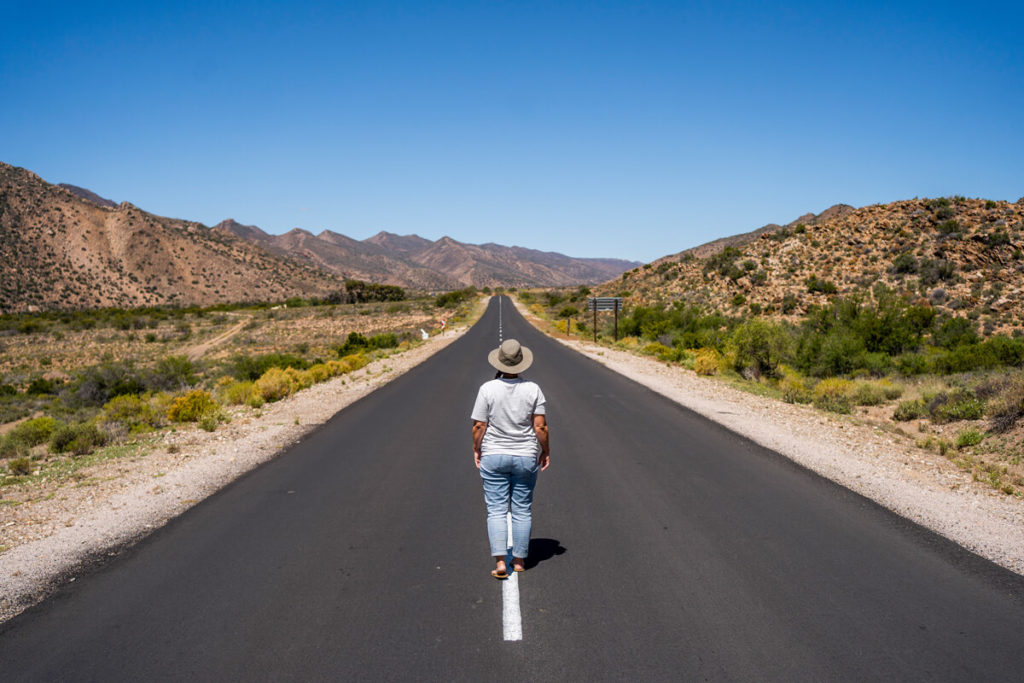
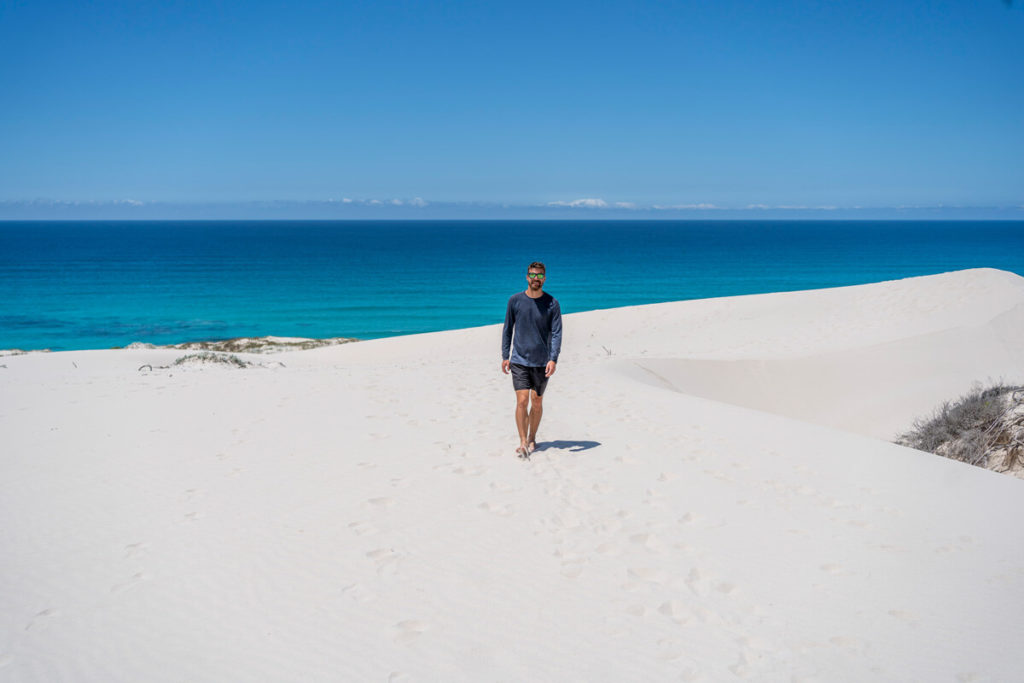
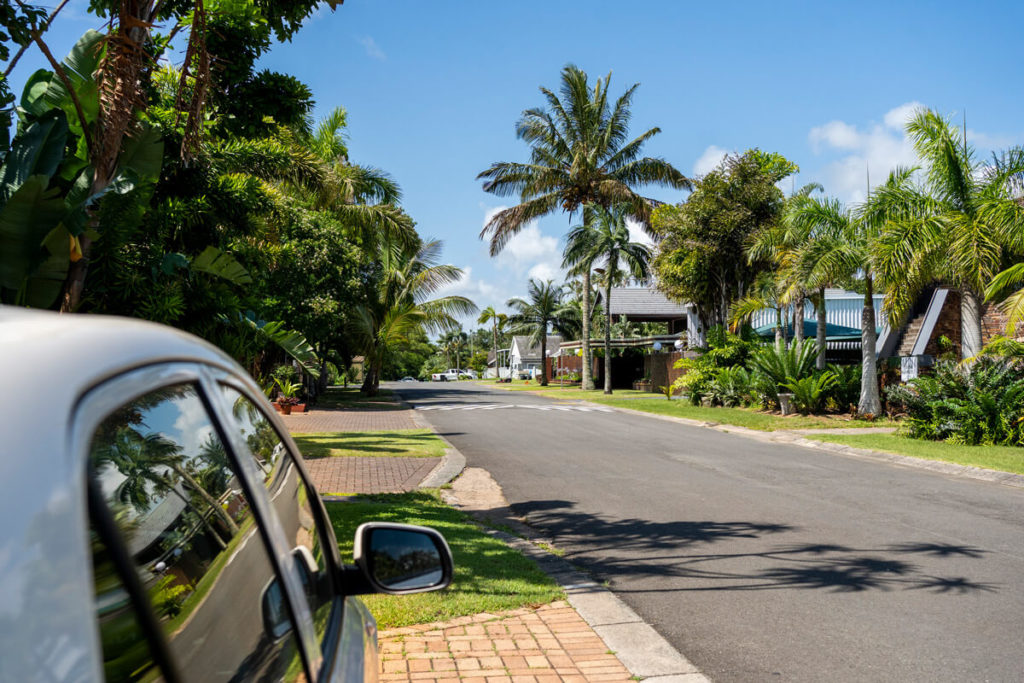
1. Costs for flights to South Africa
The costs for a round-trip flight from Germany to South Africa vary depending on the season, airline, month of travel, and time of booking. Flights to Johannesburg with a stopover (e.g., in Doha or Addis Ababa) are often the cheapest. You can get a round-trip flight for as little as €600 to €800 per person. Airlines include Etihad Airways, Air France, KLM, Turkish Airways, Emirates, and SWISS. Daily direct flights to Cape Town (Condor, Lufthansa) and Johannesburg (Lufthansa, South African Airways) are available from Munich and Frankfurt. These usually cost between €900 and €1200 per person. Our tip: Use flight search engines like Skyscanner to compare prices and set up price alerts so you don’t miss out on special offers. You can find a detailed article on this here: Book cheap flights – Our best tips.
Although prices are often cheaper during the low season (April – September), attractive deals with a stopover can also be found during the South African high season (December – February). If the departure airport, departure time, or a short trip duration are important to you, you should expect to pay €800 to €1200 per person. The less flexible you are, the higher the costs tend to be.
Currently (December 2025), you can even find direct flights from Munich or Frankfurt during the peak travel season (December – February) for under €700 (without luggage, seat, etc.). In general, however, prices are significantly higher, especially around Christmas and New Year. Every now and then, you can also snag a last-minute bargain. Direct flights are, of course, more convenient because you also save time. However, we like to use stopovers for a short stopover (e.g. stopover in Abu Dhabi).
Our flight recommendations
- Ethiopian Airways with a stopover in Addis Ababa from Frankfurt
- South African Airways direct from Frankfurt
- Etihad Airways with a stopover in Abu Dhabi from Munich
- Lufthansa direct from Frankfurt (at that time even with an A380)
- Emirates with a stopover in Dubai from Frankfurt


2. Costs of domestic flights
South Africa has a dense network of domestic flights connecting the major cities and most popular destinations. The routes are designed for tourism and business travel, so many flights are offered daily. Book early, especially during peak season, to secure the best prices!
Prices and Airlines
- Low-cost airlines (e.g., FlySafair, Mango, Lift): Flights from €40 to €80 one way (e.g., Johannesburg ↔ Cape Town).
- Full-service airlines (e.g., Airlink, South African Airways): Flights are often more expensive, €60 to €120 one way.
☞ Tip: Booking early is worthwhile! Last-minute tickets are often 30–50% more expensive. During South African summer time (December–January) and on public holidays, prices increase by an additional 20–50%. Please note that baggage, seat selection, and meals may incur additional charges with low-cost airlines.
Sample routes within the country
- Johannesburg ↔ Cape Town
- Johannesburg ↔ Nelspruit (Kruger National Park)
- Cape Town ↔ Nelspruit
- Johannesburg ↔ Port Elizabeth (Garden Route)
- Cape Town ↔ Port Elizabeth
- Johannesburg ↔ Durban (Eastern Cape)
- Cape Town ↔ Durban
- Johannesburg ↔ Upington (Northern Cape)
- Cape Town ↔ Upington
- …

3. Accommodation Costs
South Africa offers an incredibly wide range and selection of accommodations. You can find cozy hostels, rest camps, and guesthouses for little money, or stay in modern boutique hotels and luxurious safari lodges. We love finding and booking beautiful accommodations in South Africa. While we stayed in budget hostels on our first trip to South Africa, today we treat ourselves to a bit more luxury.
We mostly use Airbnb and Booking.com* to book. Since we have “Genius Level 3” at Booking.com, we often benefit from very good deals and upgrades. Many accommodations offer cheaper prices outside of peak season. Alternatively, you can stay in guesthouses run by locals – this supports the local economy and offers you more authentic experiences.
Booking on the spur of the moment? No problem! The selection of accommodations in South Africa is huge, and you’ll almost always find something suitable. During the high season (mid-December to mid-January), many of the nicest properties are booked up quickly, but there are almost always alternatives.
Accommodation Price Categories
€ – Budget: Hostels or simple accommodations start at €15–20 per night. You’ll find these mainly in cities like Cape Town, the Mother City, Johannesburg, or Durban, as well as in smaller towns along the Garden Route. Perfect for backpackers or frugal travelers.
€€ – Mid-Range: A single or double room in 3* and 4* hotels costs an average of €50–80 per night for a double room with breakfast. Especially in Cape Town and along the Garden Route, you’ll find many charming boutique hotels with great value for money.
€€€ – Luxury: For exclusive lodges, often located in the heart of national parks, you’ll pay from €150 upwards. Many offer all-inclusive packages with meals and safaris – ideal for special occasions. We have, for example, For example, I spent Christmas in the Pumba Private Game Reserve and saw many beautiful animals in the wild.
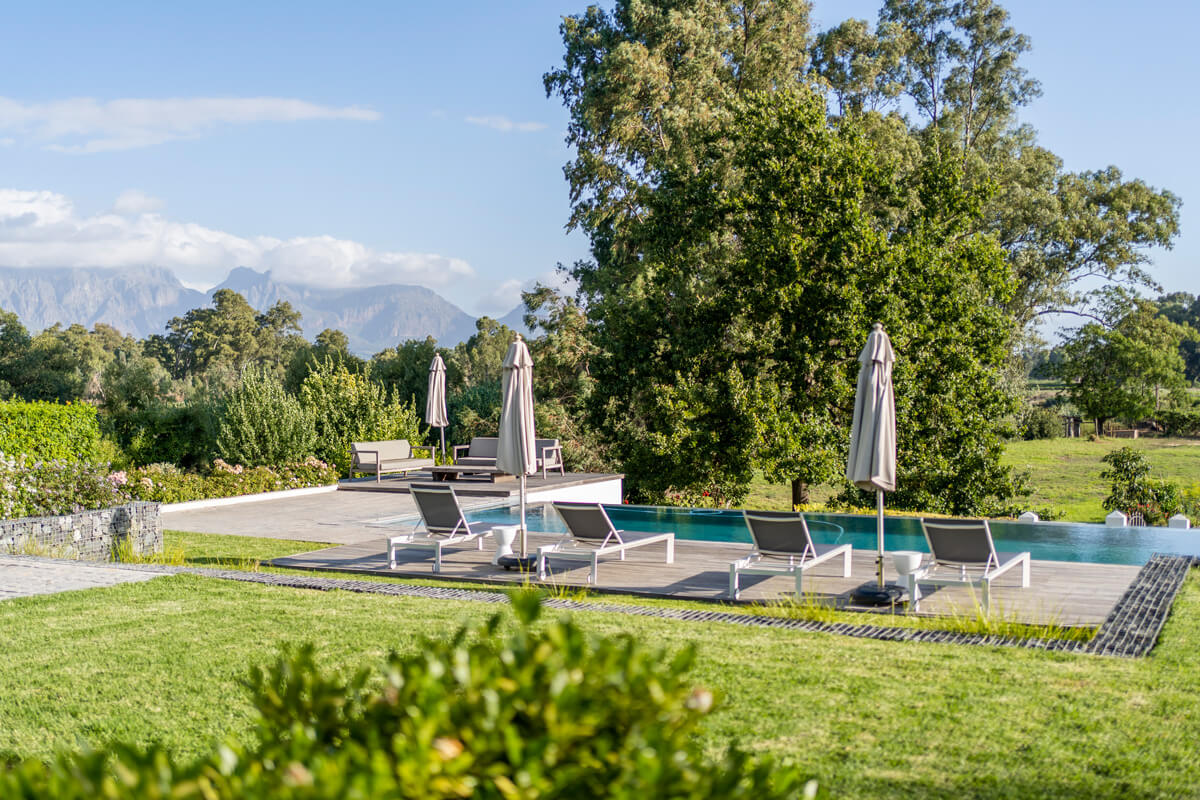
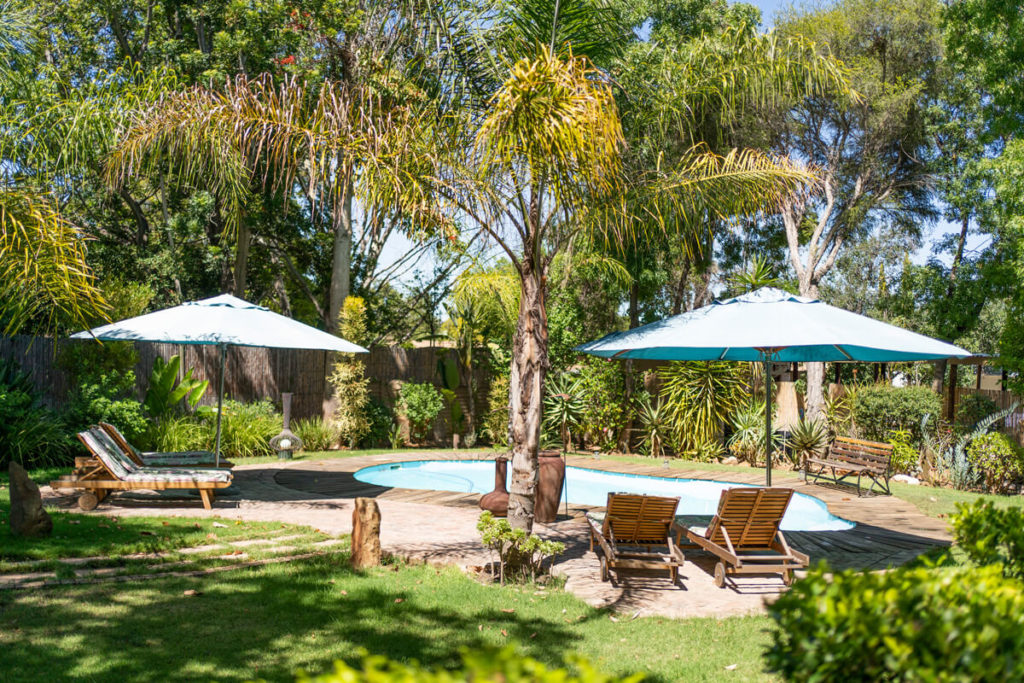
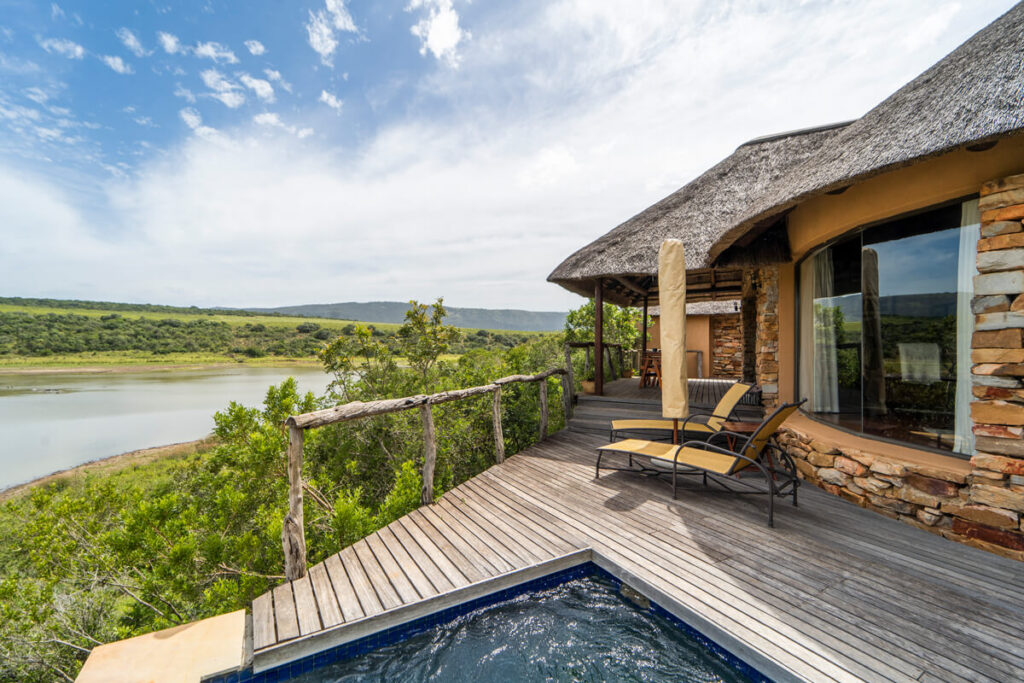
Our hotel tips for South Africa
We have gotten to know South Africa on numerous trips and tried out many types of accommodation – from charming guesthouses to luxurious safari lodges. In this chapter, you’ll find our personal favorites, perfect for different budgets and travel styles.
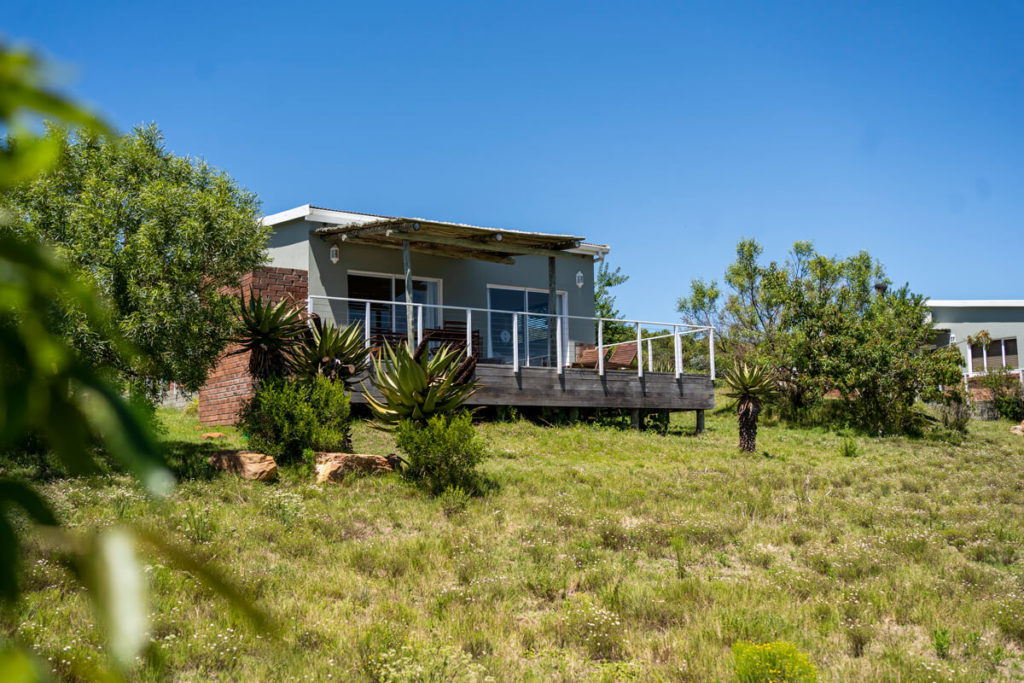
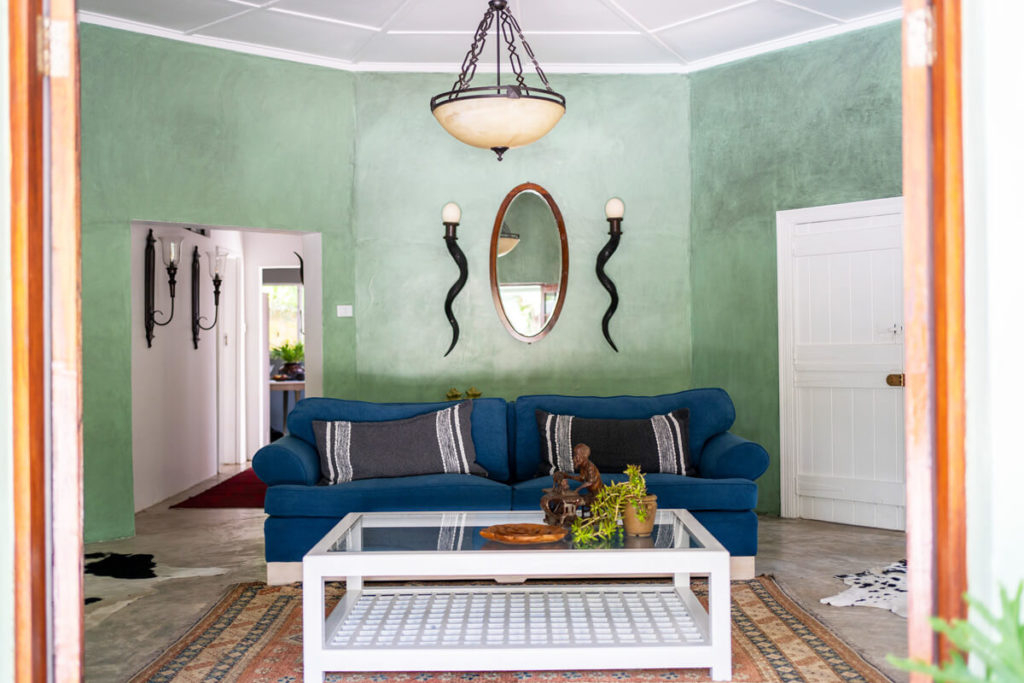
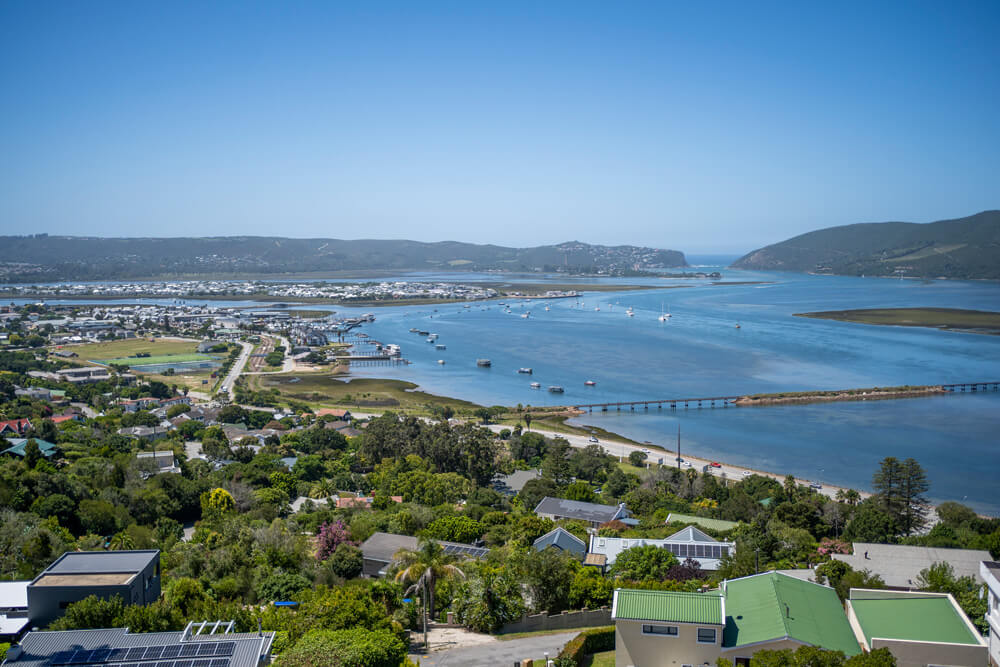
4. Transportation costs (rental car)
A rental car is almost a must if you want to explore South Africa. The country is vast and many highlights such as the Kruger National Park, the Panorama Route or the Garden Route are best reached by rental car.
- Small car: From approx. €20 per day. These are sufficient for cities and most roads.
- SUV or 4×4: From approximately €50 to €80 per day, particularly useful for remote national parks or unpaved roads.
- Gasoline: At around €1.10 per liter, gasoline is cheaper in South Africa than in Europe.
☞ Tip: Also look for one-way rental deals if you want to end your trip somewhere else. We recently paid just €24.50 per day for a small car for 31 days during peak season (including one-way rental). The longer the rental period, the cheaper the prices often are.
If you don’t want a rental car, Uber and Bolt are affordable alternatives in cities like Cape Town and Johannesburg. However, in more rural areas, you’ll hardly get anywhere without a car. While there are also buses for some routes, you should allow time for these.
Book a rental car for South Africa
- Comprehensive and theft protection with no excess (reimbursement)
- Glass, tire, and underbody protection
- Unlimited liability insurance
- All kilometers unlimited
- Fuel policy: full/full
We almost always book our rental cars in advance via www.billiger-mietwagen.de*. We recommend this platform not only because we receive a small commission on bookings, but above all because we have been using it ourselves for years – in 95% of cases.
Our experiences with this site have been consistently positive. Of course, you can also compare prices and conditions on other platforms and choose the solution that suits you best.
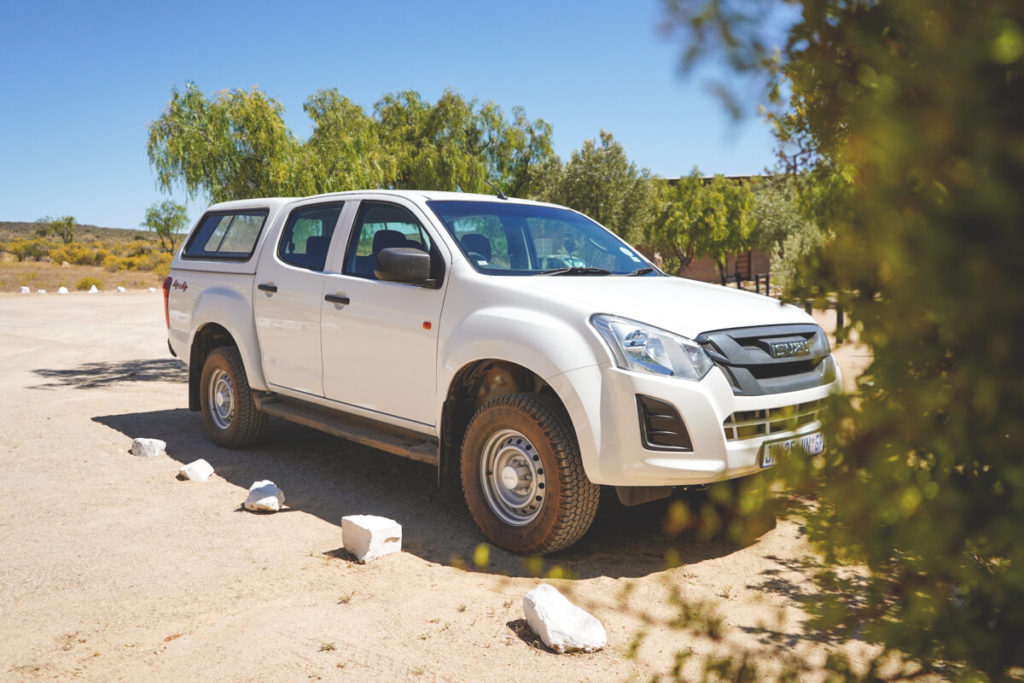
5. Food and Drink
South African cuisine is as diverse as the country itself. Whether you enjoy juicy meat dishes or prefer vegetarian options, you’ll definitely find what you’re looking for here. Especially in cities like Cape Town, Johannesburg, or Durban, as well as in popular tourist areas, you’ll find a wide selection of restaurants, cafés, and bars.
As far as prices go, you really have everything: from cheap street food to chic fine dining. In general, food prices in South Africa are on average about 15–20% lower than in Germany, but be careful with imported products – they can, of course, be considerably more expensive. For example, imported beer costs €2.40 in a restaurant, while local beer is often only €1.80.
You can shop at large supermarket chains such as Shoprite, Pick n Pay, Spar, Woolworths, or Checkers. These are usually open daily from 8 a.m. to 8 p.m. There are no discounters like Aldi or Lidl here – but don’t worry, the selection in the local markets and supermarkets is more than sufficient.
Restaurant prices
- Snacks and street food: €2-4 per dish
- Breakfast in fancy cafés: €8-15 per person including food & Coffee
- Lunch in a restaurant: €7–10 per dish
- Dinner in a restaurant: €10–15 per dish
- Fine-dining restaurant: 3-course menu €20–30 per person including drinks
- Eating in top-class restaurants: Gourmet food €50 per person
If you primarily self-cater, eat street food, or eat in simple restaurants, a small budget of €10–15 per day is sufficient. If you prefer to eat in mid-range restaurants and occasionally self-cater, the costs will rise somewhat. In that case, expect to spend €20–30 per day.
If you value fine dining, regional specialties in top locations, or exclusive wine pairings, you can expect to spend €50–80 per day. Please note that the prices listed are only averages and can vary depending on the region and restaurant.
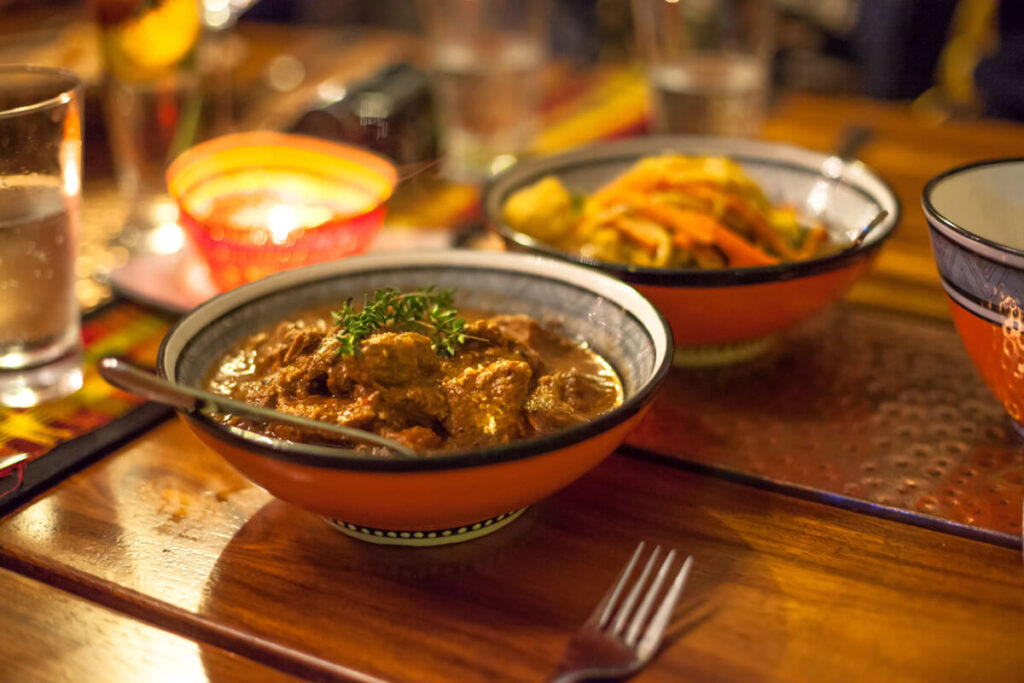
6. Costs of National Parks
South Africa is a paradise for nature lovers and adventurers. The variety of national parks and reserves is huge, and depending on the park, admission costs between €3 and €29 per day. Particularly popular are the Kruger National Park, the Cape of Good Hope, Boulders Beach (penguins), the Tsitsikamma National Park, the De Hoop Nature Reserve, and the Addo Elephant Park.
☞ Tip: If you plan to visit many national parks, the Wild Card is worthwhile. This gives you unlimited access to over 80 parks for a one-time fee of approximately €225 per person (for one person). As a couple, you only pay €350, or €175 per person. More information here: Wild Card South Africa. Prices generally increase every year.
Current entrance fees (as of December 2025)
- Exchange rate: 1 € = 19 Rand
- National park fees: South African National Parks
- Fees for most nature reserves: Cape Nature
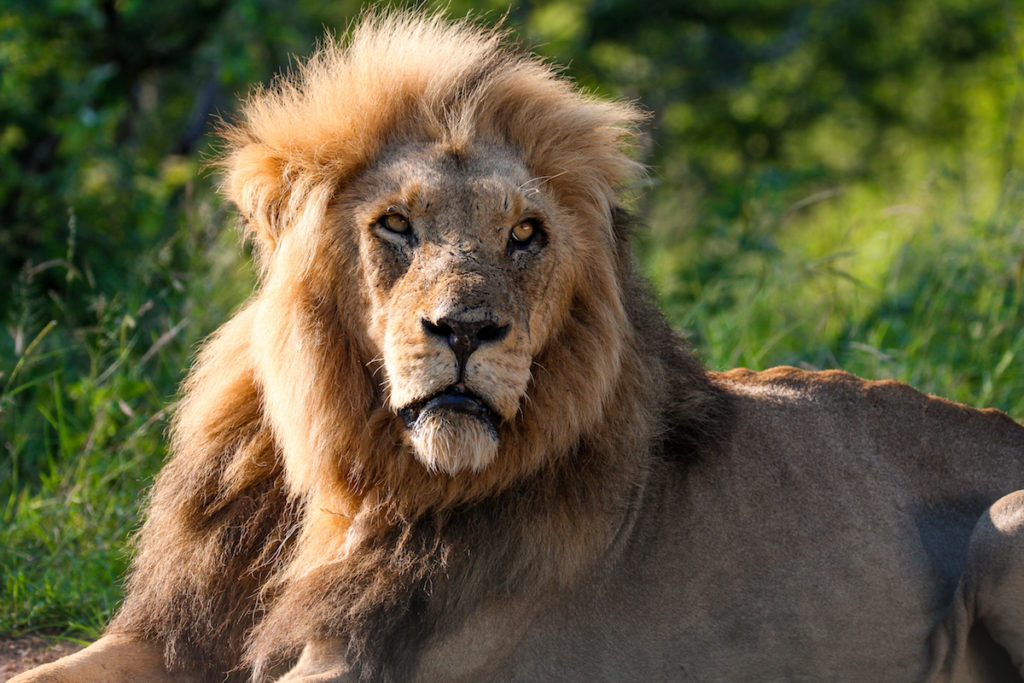
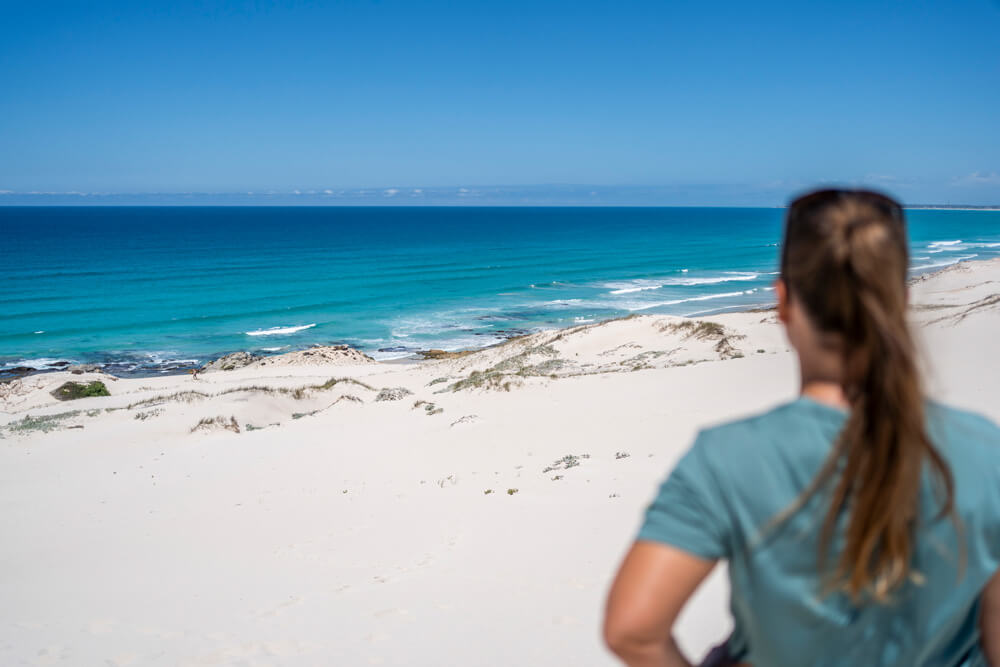
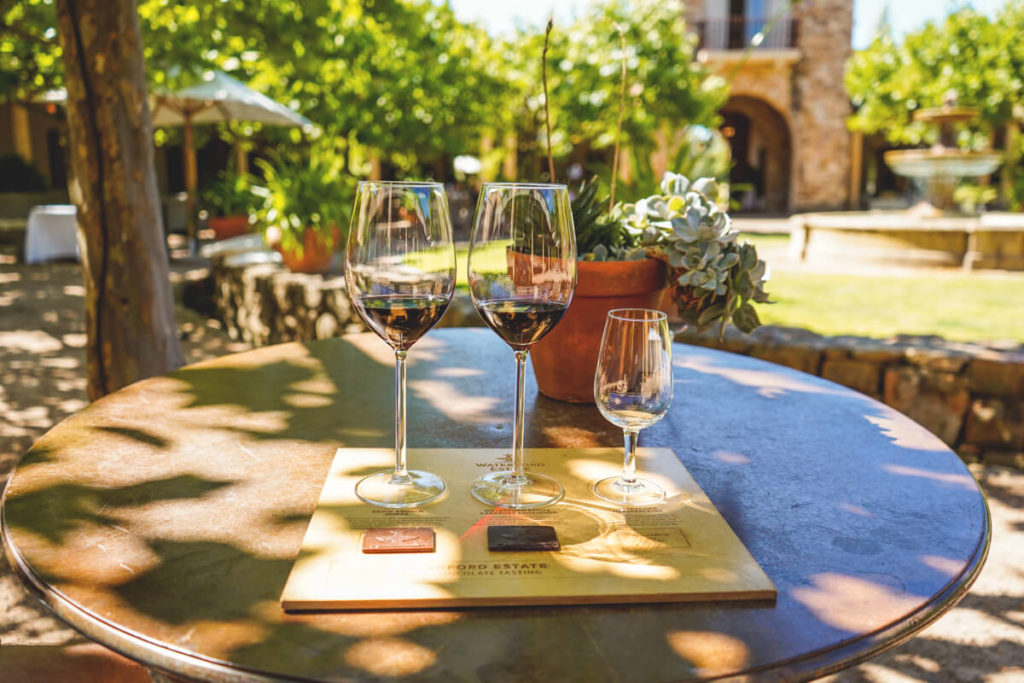
7. Costs for Activities and Tours
The costs for activities and tours in South Africa depend heavily on the type, duration, and provider. While you’ll only spend a few euros for a self-guided wine tasting, private safaris can quickly add up. We’ve compiled an overview of the most popular activities and their prices. We’ve tried many of them ourselves – we’ve marked them with “☼”.
If you’re on a tight budget, you should budget around €10–15 for simple activities. Guided tours typically cost between €40 and €75. Premium experiences like private safaris, helicopter flights, or adventure tours are more expensive—expect to spend at least €100–200 per tour.
But it doesn’t always have to be expensive day tours. We recommend, for example, a visit to the District Six Museum Cape Town (R60 entrance fee), a 2-hour street art tour in Woodstock (R450), or simply driving to beautiful viewpoints. Many viewpoint entrances are free, although some charge a small entrance fee.
Our “Next Time List”
- Cooking Class in Bo-Kaap*
- Quad Bike Tour through the Atlantis Dunes*
- Sunset Cruise by Catamaran to Table Bay*
- Guided Kayaking in Hout Bay*

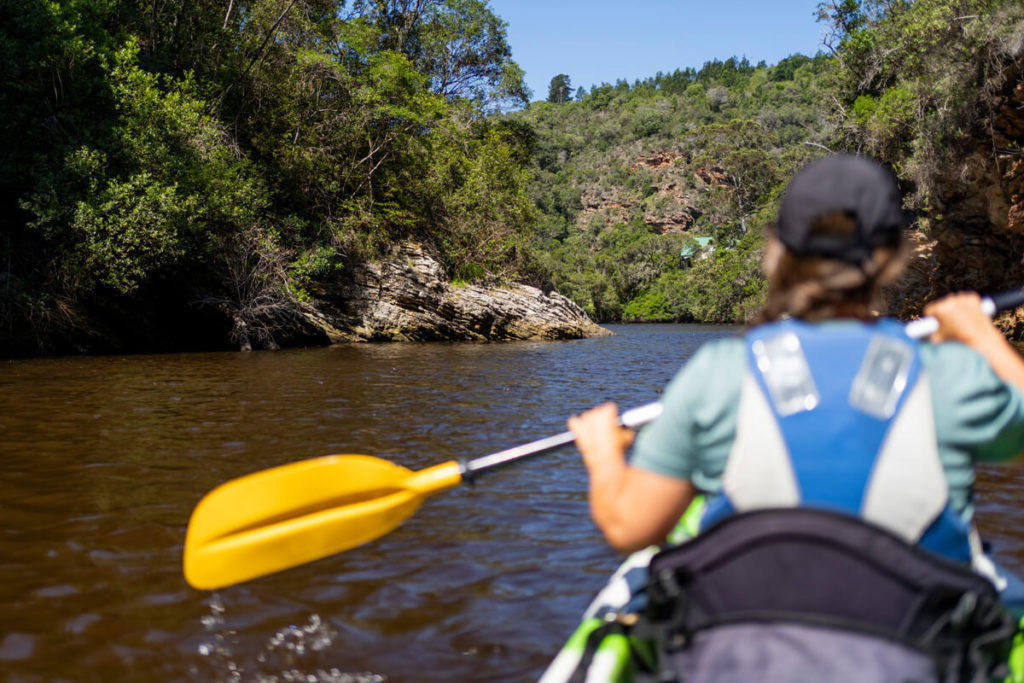

8. Safari and Game Lodges
When traveling to South Africa, the desire for a safari is at the top of many people’s list. And who doesn’t dream of seeing the Big 5 in the wild? Fortunately, South Africa truly offers many opportunities for unforgettable safaris and overnight stays in unique game lodges.
The Kruger National Park in the north of the country is the most famous national park, continually impressing us with its impressive wildlife and diverse landscapes. The Addo Elephant National Park is also a popular destination, especially for first-time visitors. It is ideally located along the Garden Route and is therefore easily accessible by rental car.
In addition to the national parks, there are also many private reserves that often offer luxurious experiences. However, you should be aware that these reserves are usually fenced and therefore cannot be compared to the “real wilderness.” Nevertheless, they often offer a fantastic experience, especially for those who don’t want to forgo comfort and appreciate exclusive wildlife viewing.
A safari in South Africa costs between €75–1,200 per night, depending on the accommodation and services. Budget lodges offer full board and game drives starting at €75, while luxurious lodges with private safaris and amenities are considerably more expensive. Prices are often lower in the off-season. Many lodges also offer early bird discounts. Additional costs such as park fees, drinks, and tips should be factored in.
Costs in Safari Lodges
- Budget Accommodation: Simple lodges or tented camps start at around ZAR 1,500 (€75–90) per person per night. Full board and two game drives per day are often included—perfect if you want to immerse yourself in the world of safari on a budget.
- Mid-range lodges: For a bit more comfort, you’ll pay between 3,000 and 6,000 ZAR (150–350 €) per night. Meals and activities like guided safaris are usually part of the package.
- Luxury lodges: If you want to treat yourself to something truly special, luxury lodges in private game reserves are the right choice. With prices ranging from 8,000 to 20,000 ZAR (500–1,200 €) per person per night, you get first-class service, spa treatments, and private safari experiences.
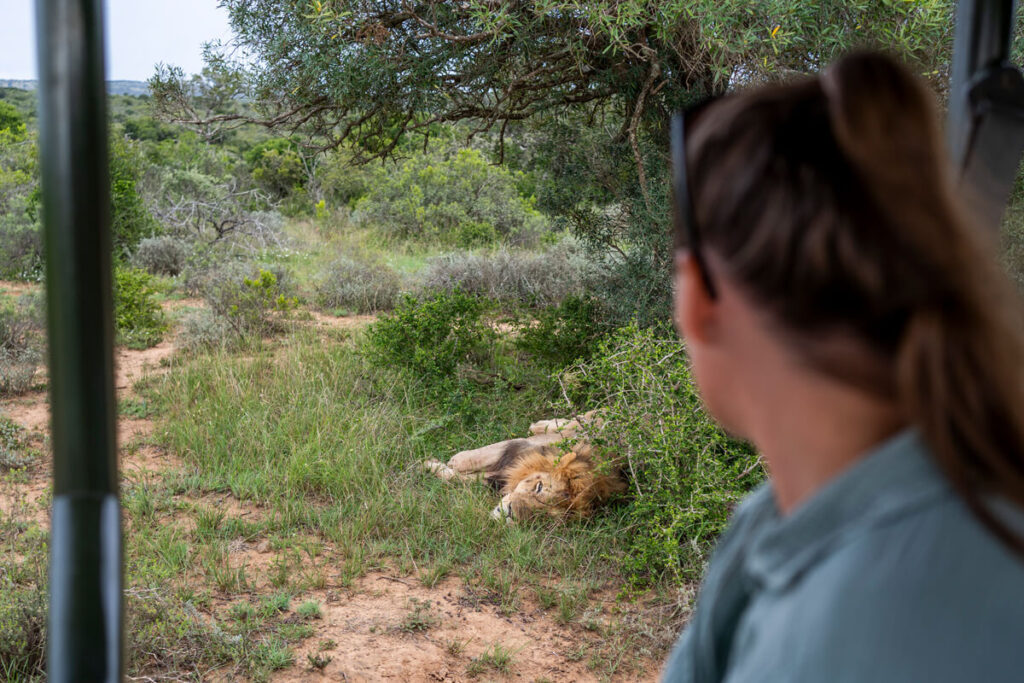
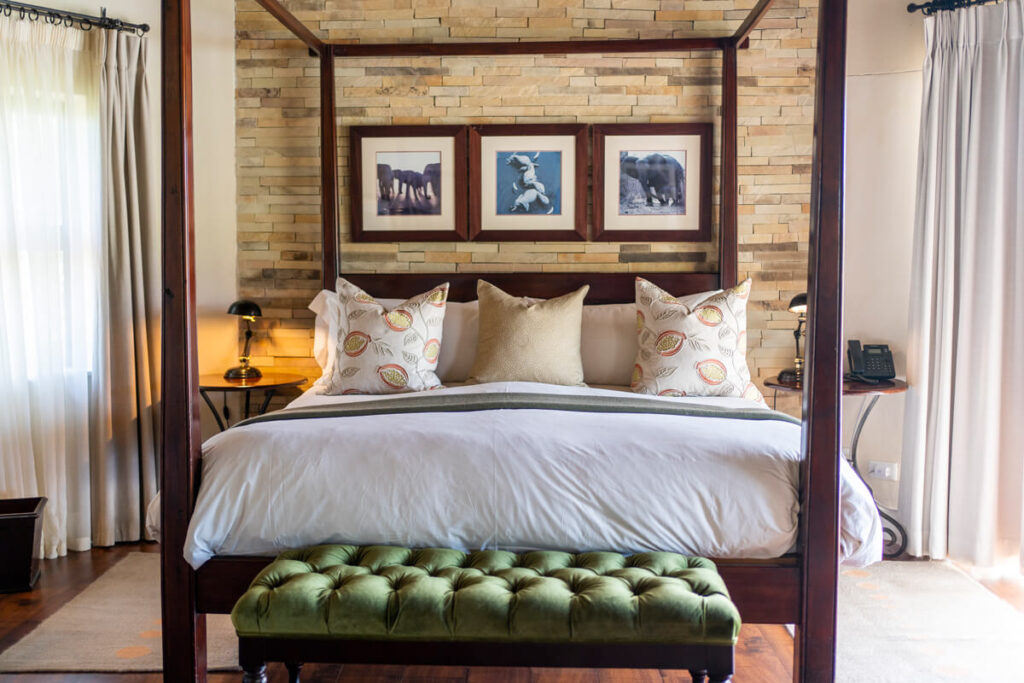
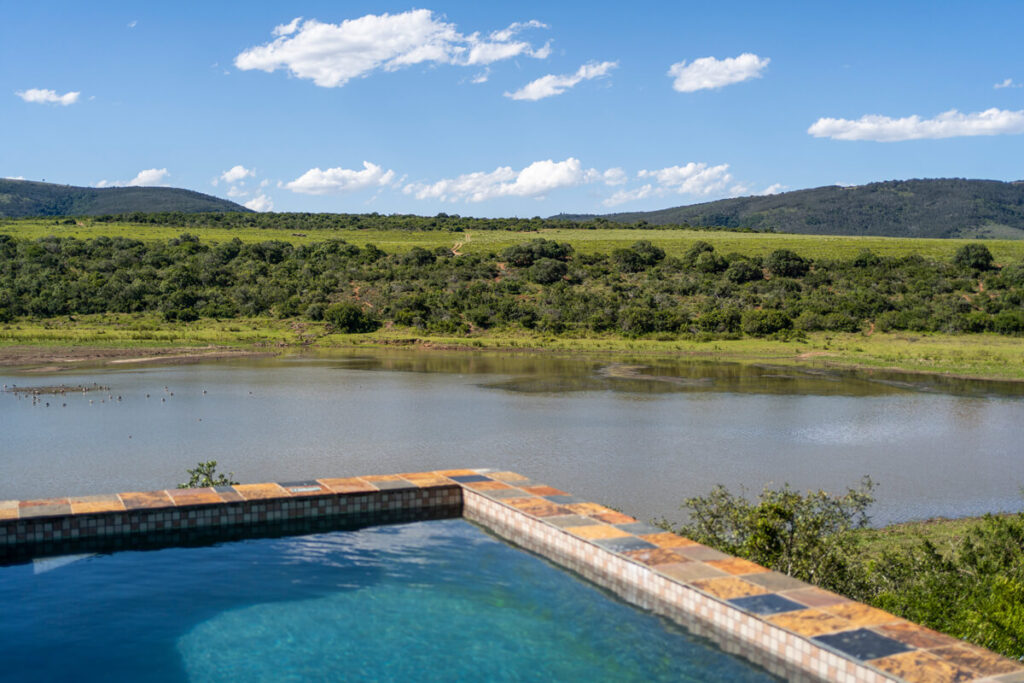
9. Internet & SIM Cards
In South Africa, you have several options for making cheap mobile calls and staying online. Due to high roaming charges from German providers, we recommend getting a local SIM card. The main providers in South Africa are Vodacom, MTN, Cell C, and Telkom. These offer prepaid SIM cards with various data packages.
- SIM card costs: Between 1 and 5 ZAR (approx. €0.05–0.25) in local shops; At airports, SIM cards can be more expensive, up to 100 ZAR (approx. €5).
- Data packages: Prices vary depending on the provider and package size. For example, Vodacom offers 20 GB for around €12 with a validity of 30 days.
When purchasing a SIM card, registration is required in accordance with the Regulation of Interception of Communications and Provision of Communication-related Information Act (RICA). For this, you will need a valid passport and proof of address for your accommodation (e.g., hotel reservation or a letter from the host). The staff in the shops will be happy to register you.
If you want to avoid the registration process and/or want to be online immediately after landing, eSIMs are a good option. We have been very satisfied with the use of eSIMs so far and can recommend the provider Airalo. You can find more information on this topic here: All about eSims for South Africa.
Of course, you’ll also find free Wi-Fi in most accommodations, restaurants, and cafes. However, you should connect to a VPN provider beforehand (we use NordVPN*) to surf the web securely. Avoid conducting sensitive transactions over unsecured connections. More on this here: Data backup while traveling.
10. Other expenses
Other expenses include expenses that are often forgotten or difficult to predict, but can arise during your trip. These include, but are not limited to:
- Entrance fees: Museums, botanical gardens, or other attractions.
- Travel preparation: Vaccinations, first aid kit, adapters, special clothing or equipment.
- Tips: Especially in restaurants, parking lots, for guides, rangers, or hotel staff.
- Souvenirs: Gifts, handicrafts, postcards, jewelry, or wine.
- Parking fees: At beaches, in cities, or national parks.
- Unplanned expenses: Repairs, extra snacks, spontaneous excursions or activities.
- Travel health insurance: If you haven’t already purchased it before your trip.
- Laundromat: In case you need to do laundry while you’re on the road.
During our last trip, we spent around €450 (€7 per day) on tips, internet, laundry, souvenirs, and shopping. This amount isn’t really meaningful, however, since we were in the country for two months. However, you should expect unplanned expenses to add up at the end.
Costs in South Africa – Sample Budget for Two Weeks
Here you’ll find a rough overview of what a two-week trip to South Africa might cost per person:
- Flights: €800–1,000 (round trip, depending on the airline and season)
- Accommodation: €700 (at an average of around €100 per night for two people)
- Rental Car & Petrol: €250–300 (e.g., a small car is ideal for road trips)
- Food: €350–400 (restaurants are often cheaper in South Africa than in Europe)
- Activities & Entrance Fees: €200–300 (depending on the excursions and tours you plan)
Total: With around €2,500 per person for 14 days, you can plan a truly wonderful trip. Of course, you can also go cheaper—or more luxurious, depending on how you travel. A quick tip: The longer you stay, the lower the costs per day will be, as you have more time to take advantage of affordable options and find spontaneous deals.
We ourselves were recently in South Africa for two months and spent an average of around €75 per person per day – excluding flights. Especially for longer stays, you can save a lot, for example, through cheaper accommodation, self-catering, or longer rental car bookings.
Travel credit card for South Africa
If you are looking forIf you’re looking for a suitable travel credit card for South Africa, there are a few important points to consider:
What should a good travel credit card be able to do?
- No foreign currency fees: In South Africa, payments are made in Rand (ZAR), and foreign currency fees can be significant with every purchase or withdrawal. A card without such fees will quickly save you money.
- Free cash withdrawals: You’ll often need cash in South Africa – especially in rural areas or at markets. Make sure your card allows free withdrawals worldwide.
- Security features: A credit card with features such as a cancellation service, a 24/7 customer hotline, and security notifications is especially important when traveling.
- Travel insurance: Some cards offer travel insurance (e.g., international travel health insurance or comprehensive car rental insurance). This can be convenient, but is not a must if you have taken out these separately.
Recommended credit cards for South Africa
Here are some of the best travel credit cards recommended by us and other travelers:
- DKB Visa Card*: No foreign currency fees and free withdrawals worldwide (with active customer status).
- Hanseatic GenialCard*: No annual fee, no foreign currency fees, and free withdrawals.
- Barclays Visa: No foreign currency fees and free withdrawals worldwide (under certain conditions).
- Advanzia Fee-Free Mastercard Gold: No annual fee and Foreign currency fees apply, but withdrawals are not free.
Costs in South Africa – Our Conclusion
South Africa is an incredibly versatile travel destination that is feasible for almost every budget. Whether you prefer to travel on a budget or treat yourself to a little luxury now and then – the costs of a trip to South Africa are ultimately manageable.
In particular, the prices for accommodation, food, and activities are often cheaper than in Europe, so you can afford more in South Africa without completely blowing your budget. Sure, flights and safaris in private reserves can quickly add up, but there are also many cheap or even free ways to experience the country.
The bottom line is that South Africa offers great value for money, whether for a two-week vacation or a longer stay. Do you have any questions or your own travel budget tips? Feel free to post them in the comments!